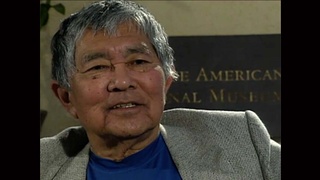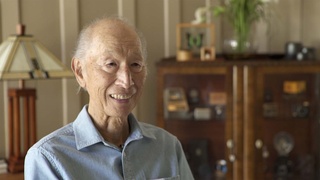Entrevistas
Living in Hawaii after Pearl Harbor
I was born on October 21st, 1934. I was born in Honolulu at the Kapi’olani Hospital. My father came here when he was about eighteen years old, from Hiroshima. My mother was, you know, bi-educated here and she graduated high school in Iwakuni, Japan.
It was on a Sunday that they bombed…you know, I was fishing. But I see all the anti-aircraft fire, they all were blank white spots Everybody thought it was strange. But nobody believed that Japan had attacked Pearl Harbor, you know.
People used to call us "Jap", you know, and we used to get in a fight, and they used to have small gangs in all different districts, you know...that were created because of this thing, you know.
Everybody painted their windows black, right? So you couldn't see even if you had the light on. There was a curfew. Adults, neighbors would come to the house, or you go to another neighbor's house and they make coffee, serve pastries, or something. This is in the evening, after dinner...you know. Or play cards, you know...play trumps or hanafuda or whatever. I remember that.
Fecha: August 2012
Zona: Hawai`i, US
Entrevista: John Esaki
País: Watase Media Arts Center, Japanese American National Museum








